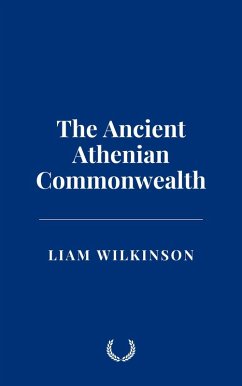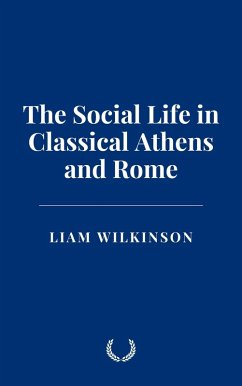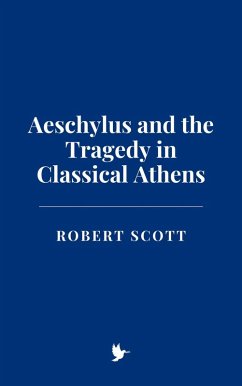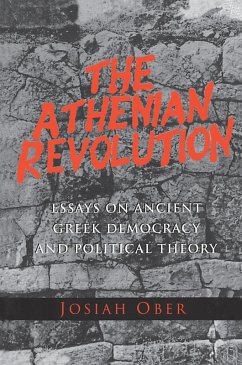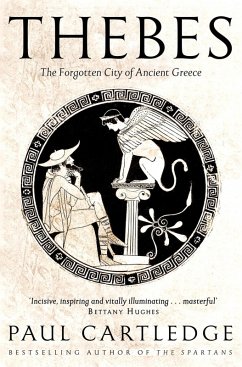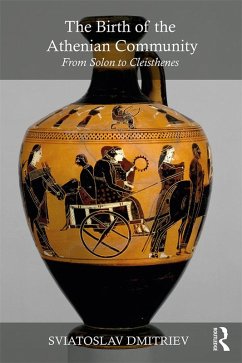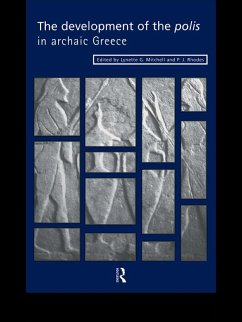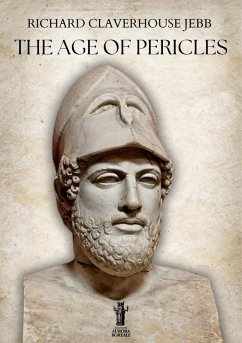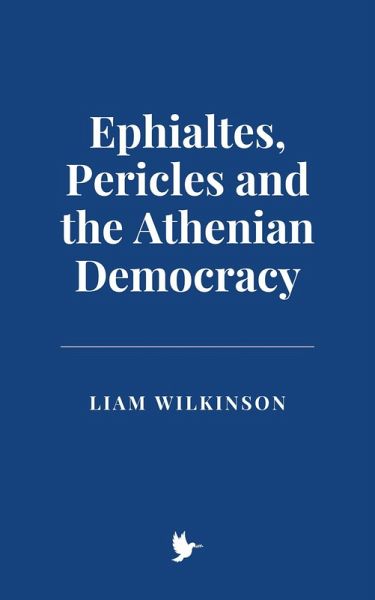
Ephialtes, Pericles and the Athenian Democracy (eBook, ePUB)

PAYBACK Punkte
0 °P sammeln!
This work explores the origins, development, and legacy of Athenian democracy through the intertwined stories of its key architects, Ephialtes and Pericles, and the broader historical and cultural context of classical Athens. From the foundational reforms of Cleisthenes to the democratic expansions of Ephialtes, Athens transformed into the first sustained experiment in collective self-governance, a system that championed participation, equality under the law, and civic responsibility. Pericles' leadership consolidated these ideals, ushering in a Golden Age of cultural and political achievement...
This work explores the origins, development, and legacy of Athenian democracy through the intertwined stories of its key architects, Ephialtes and Pericles, and the broader historical and cultural context of classical Athens. From the foundational reforms of Cleisthenes to the democratic expansions of Ephialtes, Athens transformed into the first sustained experiment in collective self-governance, a system that championed participation, equality under the law, and civic responsibility. Pericles' leadership consolidated these ideals, ushering in a Golden Age of cultural and political achievement, yet also revealing the inherent contradictions of democracy in its reliance on exclusion, imperialism, and elite leadership.
The study engages deeply with primary sources such as Aristotle's Athenian Constitution, Thucydides' History of the Peloponnesian War, and the philosophical critiques of Plato and Aristotle, examining both the triumphs and limitations of Athenian democracy. It traces the system's evolution through periods of reform, internal strife, and external challenges, including the oligarchic revolts and the devastating Peloponnesian War, to reveal the tensions between ideals and practical governance. The intellectual and cultural milieu of Athens, with its emphasis on debate, philosophy, and drama, is also analyzed as a product and reflection of democratic values.
While Athenian democracy was far from inclusive-excluding women, slaves, and metics-it laid the intellectual and institutional groundwork for modern democratic thought. Its legacy, marked by achievements and contradictions, offers timeless lessons on the dynamics of power, inclusion, accountability, and collective decision-making. This book examines not only the historical narrative of Athens but also the enduring relevance of its democratic experiment to contemporary political systems, highlighting both its innovative spirit and its cautionary tales.
The study engages deeply with primary sources such as Aristotle's Athenian Constitution, Thucydides' History of the Peloponnesian War, and the philosophical critiques of Plato and Aristotle, examining both the triumphs and limitations of Athenian democracy. It traces the system's evolution through periods of reform, internal strife, and external challenges, including the oligarchic revolts and the devastating Peloponnesian War, to reveal the tensions between ideals and practical governance. The intellectual and cultural milieu of Athens, with its emphasis on debate, philosophy, and drama, is also analyzed as a product and reflection of democratic values.
While Athenian democracy was far from inclusive-excluding women, slaves, and metics-it laid the intellectual and institutional groundwork for modern democratic thought. Its legacy, marked by achievements and contradictions, offers timeless lessons on the dynamics of power, inclusion, accountability, and collective decision-making. This book examines not only the historical narrative of Athens but also the enduring relevance of its democratic experiment to contemporary political systems, highlighting both its innovative spirit and its cautionary tales.
Dieser Download kann aus rechtlichen Gründen nur mit Rechnungsadresse in A, B, CY, CZ, D, DK, EW, E, FIN, F, GR, H, IRL, I, LT, L, LR, M, NL, PL, P, R, S, SLO, SK ausgeliefert werden.




